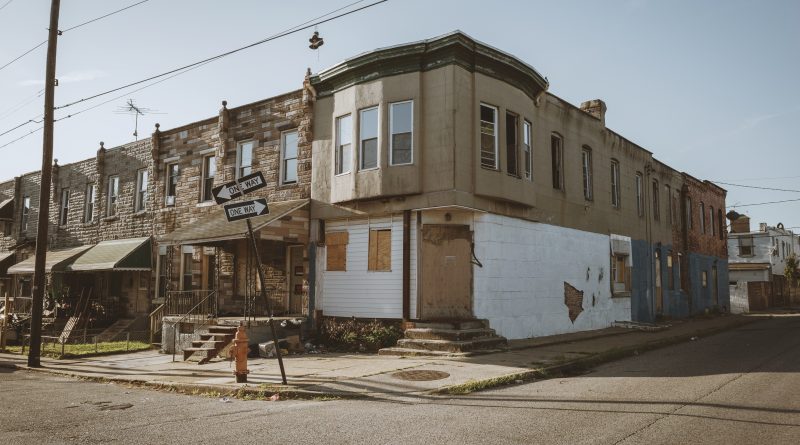Missing the Point – Taking Over Baltimore
There’s a tendency for Marylanders – for people in general, regardless of what state we’re talking about – to think in very local terms about where we live. I live, for example, in Howard County. No, wait, I live in Columbia, which is in Howard County. Or I live in Baltimore City. Baltimore County, which surrounds the city on three of its four sides, is someplace else. Sometimes, depending upon the context, we’ll tell people the name of the specific neighborhood or village where our house is located.
Did you know that, according to Wikipedia, Baltimore City has 274 neighborhoods where, collectively, fewer than a total of 600,000 people live? These neighborhoods vary, of course, socially, economically, and in other ways. What’s interesting is how many there are and how specifically people tend to define where they live and work.
Let me suggest that, while specific neighborhood and county references may serve us well when it comes to property values, the quality of local schools, and crime rates, there are other, very meaningful times when a broader perspective makes much more sense. This op/ed is one of those times.
The city’s population, which has been declining for decades, continues to fall. Rough guess as to why? It’s because pretty much anyone who can afford to leave, does so while, at the same time, persistent conditions in the city discourage people from moving to Baltimore. There’s plenty of room if you work in Baltimore but, for many potential city residents, life is safer and otherwise better in the suburbs.
It stands to reason that, not only is the population of the city declining, the mix of city residents is changing in favor of less successful families. The un- and under-employed are growing as a percent of Baltimore’s total population. In the process, demands on city, state, and Federal resources for social services are increasing.
Unemployment in the city is the highest in the state among counties having larger populations – and very nearly the highest in the state, period.
Baltimore’s real property, personal property and utility tax rates are by far the highest in the state and among the highest for larger cities in the country, further discouraging both residential and new business immigration.
Crime, violent and otherwise, is out of control. Well over 300 people a year are shot to death and others are shot, but don’t die. That’s an average of more than 25 gun-related homicides a month, not to mention various other crimes less prevalent elsewhere in most of Maryland.
Public education in Baltimore is ranked worst in the state, having failed for years to prepare the city’s children to be competitive for higher education and employment. The problem with these city schools cannot be overstated. It’s not just that Baltimore schools are ranked last in relative terms, many of them are not even teaching their students the minimum which, by reasonable standards, those students are required to learn. A recent analysis of test scores found zero students at 23 Baltimore City schools understanding math at their grade level. Zero students.
Innumerable media articles describe a long history of corruption among Baltimore City government officials.
With few exceptions, the impression one gets driving through Baltimore is that the city is a dreary place, dingy, in need of repair and dilapidated. Pretty much the same can be said of its streets and other essential infrastructure which are old, insufficiently maintained and, in some cases, in critical need of replacement or repairs that the city cannot afford to make.
The city may have a high credit rating because it pays its bills, but it clearly lacks sufficient funds to prevent further decay – physically, economically, and for many of the services it offers. Financially, the city has no chance of accomplishing a recovery on its own even if a more enlightened city government were elected and knew what to do. To be kind, the city government is treading water, just barely staying afloat when it comes to providing well less than the minimum its people need and deserve.
Vast numbers of units and total acreage of the city’s housing and commercial properties are vacant or abandoned and continue to fester – costing the city a fortune in lost property tax revenues and related expenses.
And the proof is in the pudding. The uninspired, incompetent city government has shown itself, time and time again over decades, to be incapable of stopping and reversing the city’s decline.
“Okay, okay already. Enough. I get it. You’re no fan of the city.”
Actually, quite the contrary. I’m a huge fan of Baltimore and, more importantly, of the people who still live there, roughly two-thirds of which struggle every day to get by. Even if I didn’t have a personal interest in Baltimore – largely related to my family’s history there – what about the current and opportunity cost to all Marylanders of allowing the decline of the city to continue? (“Opportunity cost” refers to the revenue and/or non-pecuniary benefits that could be, but are not realized because something has failed to happen.) Just think of the additional state revenues and the direct and indirect economic and other benefits we would all enjoy were a thriving Baltimore City be able to realize its full potential.
If for no other but humane reasons, doesn’t it bother you, even a little, that there’s a major jurisdiction in a state as successful as Maryland where hundreds of people, year in and year out, are being shot to death and where the public schools have failed to accomplish their minimum objectives? Where every May and June students graduate who are well behind most of their cohorts elsewhere in Maryland and in the country overall – and who may never catch up. And where local government has, clearly and for decades, proven itself to be ineffective?
And so, for both personal and collective social and economic reasons, I have a bold suggestion. It’s high time that we all take responsibility for saving the city of Baltimore. And, to that end, I’m suggesting that the legislature declare a state of public emergency and, yes folks, take over management of the city’s public education, public safety, economic development and infrastructure management. The city government can and should participate in the takeover, but cannot be in charge of it.
“Wow. You’ve got to be kidding.”
Not in the least. From what I can tell, the taking over of troubled cities in the United States is rare, but would not be precedent-setting. More to the point, there’s already been serious talk in Annapolis about the state taking over Baltimore’s public education. All I’m suggesting is that the emergency in the City of Baltimore is much more serious and broader in its scope. That, in fact, it’s so serious – from the related perspectives of public health and safety alone – as to warrant state intervention of an all-pervasive and sustained nature.
“What makes you think the state knows any better what to do?”
I don’t think the state knows what to do. What I am certain of, however, is that the state has both the resources and will – particularly given the leadership of our new Governor – to figure it out.
Presumably, the legislature would begin by convening a commission of government and private sector education, economic development, and public safety specialists who would – independently of problems and special interests affecting Baltimore City government – come up with a plan and rough estimate of its duration and costs. In the meantime, state-funded emergency resources can be deployed to calm the city down and improve its various services until an all-inclusive solution can be finalized and implemented.
Make no mistake about it. What I’m talking about will be a very major effort lasting the better part of a decade and perhaps longer.
No matter where you live in Maryland, whatever your education, profession, or income, the great city of Baltimore and its people are family. The city needs our help and it is to our advantage, socially and economically, to encourage a full recovery that Baltimore obviously cannot accomplish on it own. …And because, on a personal level for all of us, it’s the right thing to do.
Newly elected Governor Moore, are you paying attention – or missing the point?

Les Cohen is a long-term Marylander, having grown up in Annapolis. Professionally, he writes and edits materials for business and political clients from his base of operations in Columbia, Maryland. He has a Ph.D. in Urban and Regional Economics. Leave a comment or feel free to send him an email to [email protected].

